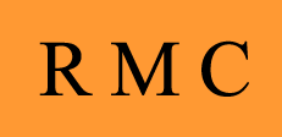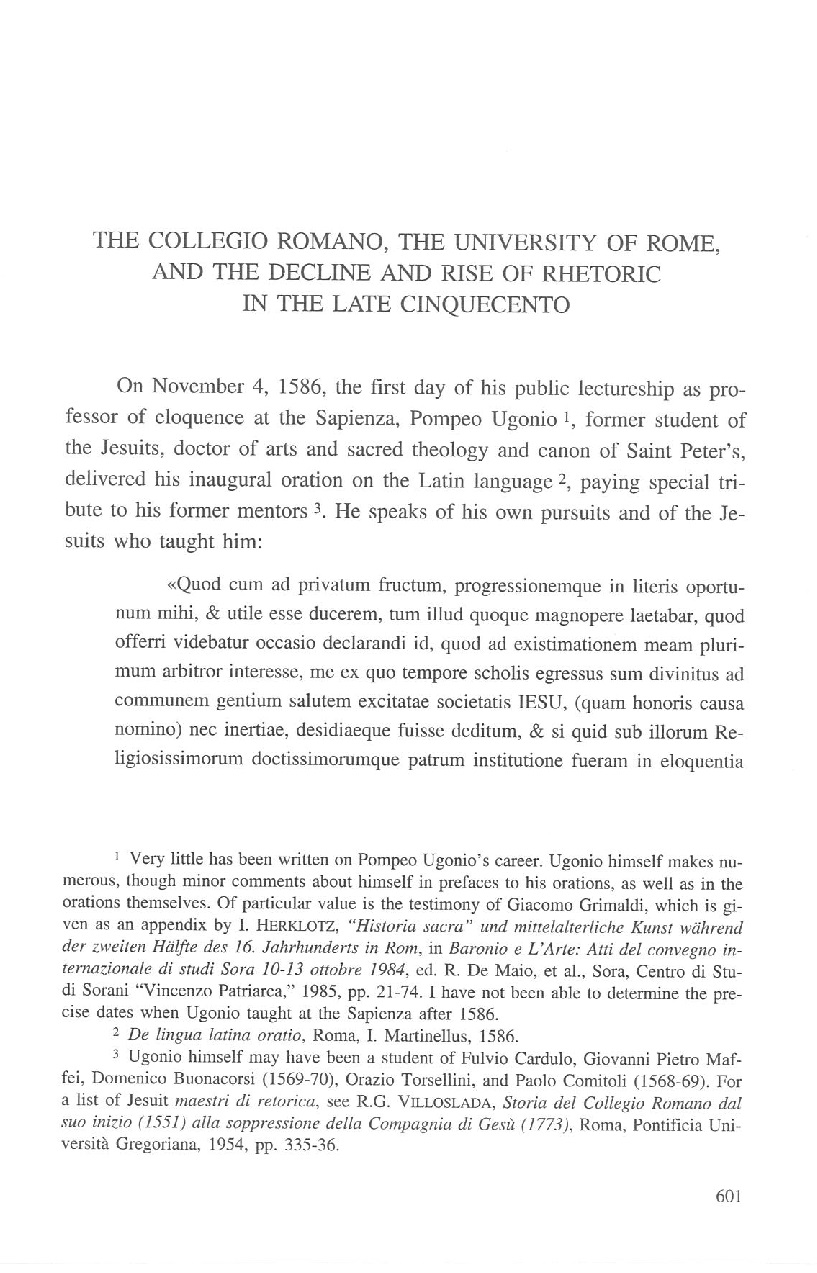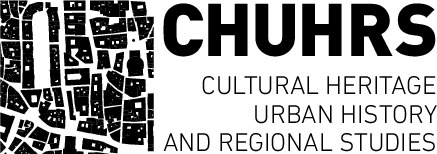
- Roma moderna e contemporanea
- Codice etico
- Editore e amministrazione
- Organi scientifici
- Indicizzazione e valutazione
- Norme editoriali
- Ultimo fascicolo
- Indice dei fascicoli
- Indice degli autori
- Articoli Open access
- Call for papers Numero monografico
- Abbonamenti
- Info recensioni
- Trasferimento di copyright
- Richiesta di autorizzazioni
AMBIENTE DI TEST
Indice dei fascicoli
ROMA MODERNA E CONTEMPORANEA » 1995/3 » Il Collegio Romano (secc. XVI-XIX)
ISSN 1122-0244
McGinness Frederick J.
The Collegio Romano, the University of Rome, and the decline and rise of rhetoric in the late Cinquecento
pp.601-624
Articoli
Abstract: THE COLLEGIO ROMANO, THE UNIVERSITY OF ROME, AND THE DECLINE AND RISE OF RHETORIC IN THE LATE CINQUECENTO
At Rome in the 1560’s, Jesuit maestri di retorica gave a new purpose for the study of rhetoric. They envisioned and promoted the ideal of their students of rhetoric as successors to the Roman oratores of the Roman respublica, though with the grander task of defending not pagan Rome but the respublica christiana. The Jesuits prevailed against the popular conception that Latin oratory was virtually defunct by circulating the idea, primarily in their academic addresses, that the preacher was the orator, and that his effectiveness in preaching depended on mastering the classical rhetorical masters. The masters included not just Cicero, who always enjoyed rpime status, but other Latin and Greek orators and writers, and the Christian fathers as well. While not in competition with the Sapienza’s instructors of thetoric, the Hesuits in the end came to dominate the teaching of rhetoric at Rome by the early Seicento.

Referenze
- download: n.d.
- Url: http://www.chuhrs.eu/?contenuto=indice-dei-fascicoli-rmc&idarticolo=194
- DOI:
- citazione: F. McGinness, The Collegio Romano, the University of Rome, and the decline and rise of rhetoric in the late Cinquecento, "Roma moderna e Contemporanea", III/3, pp.601-624, DOI:
